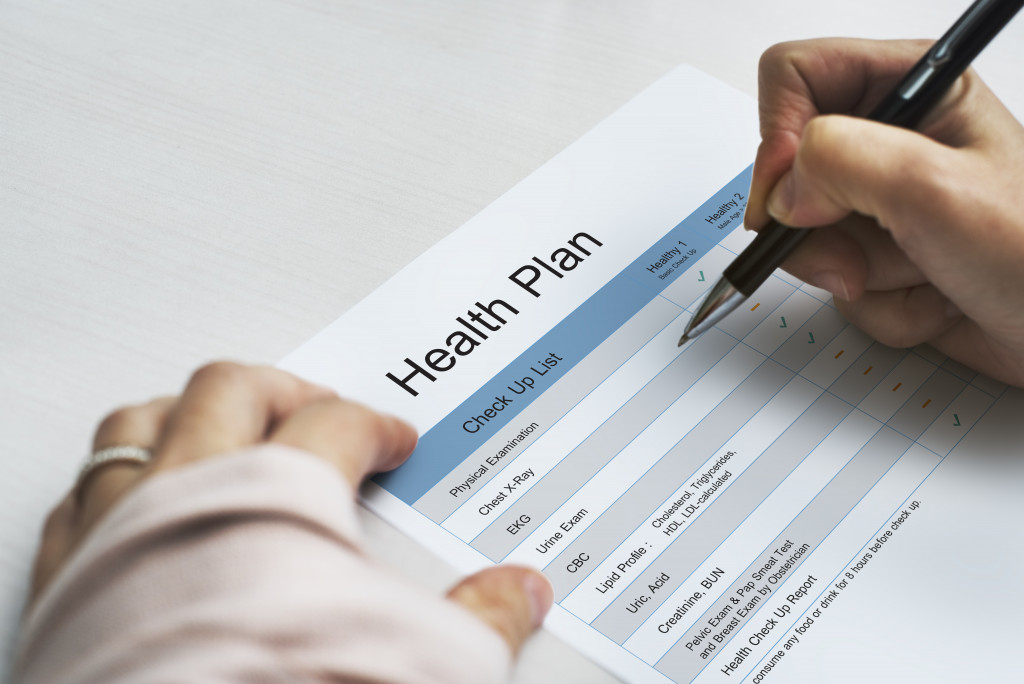- Monitoring your overall health allows you to detect potential health issues early on and take preventive measures.
- Regular physical exams are a key component in monitoring your overall health and should not be overlooked or neglected.
- Keeping track of vital signs at home can also provide valuable insight into your overall well-being.
- You also need to manage your health-related financial decisions to have access to quality care in emergencies.
As the saying goes, “health is wealth.” Your overall well-being is a crucial aspect of your life that you should prioritize. However, with busy schedules and daily demands, it’s easy to overlook your health until you experience symptoms or illnesses.
Research shows that only a small fraction of Americans actively monitor their overall health. A study published in the National Library of Medicine found that only 42% of adults in the United States reported having had a physical exam or activity screening in the past year. This means that nearly six out of 10 adults are skipping important check-ups and screening tests to monitor their overall health. This can be concerning because regular physical exams are key to preventing illnesses and detecting potential health issues early on.
Monitoring your overall health is essential in maintaining a healthy lifestyle. Doing so allows you to identify potential health issues early on and take preventive measures to avoid further complications. In this article, you will learn why monitoring your overall health matters and how to do it effectively.
Why monitor your overall health?
Monitoring your overall health is incredibly important for living a happy and productive life. Thus, it should not be taken lightly. Here are just a few reasons why you need to monitor your health actively:
Early detection of health issues
Regular health monitoring allows you to detect potential health issues early on. By doing so, you can seek medical attention promptly and prevent further complications. It can also help you stay ahead of any health problems that may arise, ensuring you are healthy and well-equipped to face whatever life throws at you. For instance, if you notice changes in your skin or moles’ size and shape, it could be a sign of skin cancer. By seeking medical attention immediately, you increase your chances of successful treatment.
Promotes healthy habits
When you consistently monitor your overall health, you become more aware of what affects your well-being. You become more conscious of what you eat, how much exercise you’re getting, and how much sleep you get each night. This awareness promotes healthy habits that contribute to better physical and mental health.
Get regular check-ups
Regular check-ups with your healthcare provider are essential in monitoring your overall health effectively. During these visits, they may perform routine tests such as blood work or physical exams to evaluate your current state of health. Physical exams are essential in monitoring your overall health as they provide insight into how your body is functioning and what possible warning signs you should be aware of.
An annual physical exam includes tests such as a blood pressure check, cholesterol screening, diabetes screening, thyroid functioning test, urinalysis, and visual acuity tests. These tests can help detect any underlying issues that may be causing the symptoms you are experiencing. By staying on top of your health with regular check-ups and screenings, you may reduce your risk of developing certain illnesses or conditions like heart disease or cancer down the line.

One of the reliable medical providers who can provide you with a comprehensive physical exam is sanoviv.com. Their medical program covers many areas that will help determine if you have any conditions needing monitoring or treatment.
Keep track of your vital signs
Your vital signs are crucial indicators of your overall health status. These include blood pressure, heart rate, respiratory rate, body temperature, and oxygen saturation levels. You can monitor these at home using various tools such as blood pressure monitors or pulse oximeters.
Manage health-related costs
Managing health-related costs is also important to monitor your overall health, as you cannot avail of treatments without sufficient funding. With the rising cost of healthcare, it’s more important than ever to keep an eye on your healthcare expenditures and make smart decisions when it comes to paying for medical services and treatments. Taking steps to manage these costs effectively can help ensure you have access to quality care when you need it the most.
Insurance coverage
One of the key elements in managing health-related costs is having a good understanding of your insurance coverage. Knowing what treatments and services are covered, as well as any potential out-of-pocket expenses, will allow you to make informed decisions about the care you receive. Additionally, exploring all available options before deciding will help you find the best deal possible. For instance, if one provider charges a higher fee than another for a particular service or treatment, shopping around for providers who offer lower rates could save you money in the long run.

Financial assistance
It’s also important to utilize available resources to help offset healthcare costs. For example, many employers offer employee assistance programs (EAPs) that provide free or discounted services, such as counseling sessions or wellness classes, at no additional cost to employees. Additionally, there are numerous organizations that provide financial assistance for those in need, such as Medicare/Medicaid, for elderly and disabled persons who don’t qualify for private insurance plans. Taking advantage of these programs can help reduce overall medical expenses significantly.
While it may be easy to overlook your health in today’s busy world, prioritizing your well-being is key to living a happy and productive life. By taking preventive measures such as regular physical exams and monitoring vital signs at home, you can reduce the risk of developing serious medical conditions down the line. Several resources are also available to help offset healthcare costs if needed; you just need to know where to look for them.






